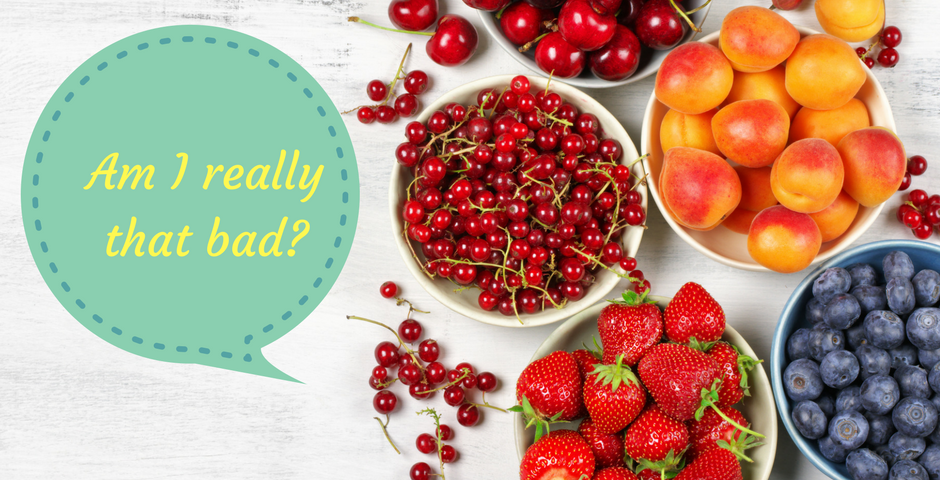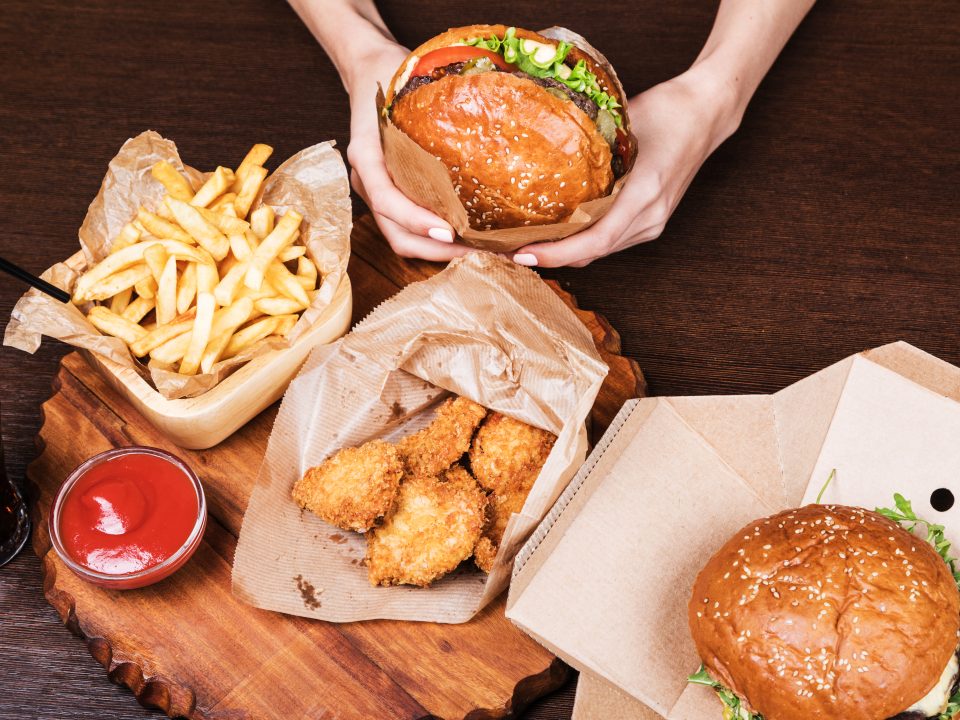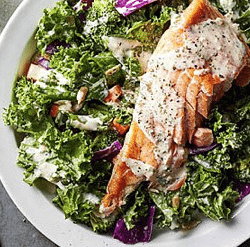Mediterranean roasted pumpkin
April 4, 201713 ways to get out of going to work
April 4, 2017One person tells you to eat fruit because it’s healthy, the next person says not to because of all the sugar in it. Who do you believe? And when you are trying to lose weight should you avoid it or include it?
We cut through all the misinformation and give you the facts below…
Because of the sugar…
Sugar doesn’t have a very good name for itself at the moment, with much of the worlds obesity problems being blamed on both the overconsumption of sugar itself, plus the era of low fat products where sugar was often added to improve the taste when the fat content was removed.
When it comes to fruit and sugar, you only really need to watch out for fruit juice (concentrated sugar and no fibre), dried fruit (can be easy to overindulge), fruit drinks (often have a lot of added sugar), fruit flavoured yoghurts/frozen yoghurts/sorbets (often have sugar added), fruit flavoured milks or smoothies, and processed snacks like fruit bars.
The great thing about whole fruit is that the sugar in it doesn’t act like regular sugar does in your body. Because of the fibre content (especially in the skin), fruit is digested at a low rate, which means that the sugar in it is released into your body over a longer period of time, giving you more sustained energy levels and helping you feel full for longer. Plus fruit is packed full of nutrients that your body needs.
Sugar is actually the preferred fuel source for our body, but is really only good for us when consumed in a low GI (slowly digested) form, and in moderate amounts spread through the day: 2-3 serves a day, 1 serve is a piece the size of a tennis ball, or 1 cup chopped.
With food intolerances
There are two main instances when fruit consumption can cause problems because of intolerances. It is important that you do not self diagnose, and instead work with a qualified dietitian to develop a tailored eating plan.
The first is FODMAP intolerance, where you have a sensitivity to certain short-chain carbohydrates found in some fruits (and other foods) such as apples, pears, stone fruit, watermelon, fruit juice and dried fruit. For those suffering from this kind of intolerance, they can experience symptoms such as bloating, diarrhoea and/or constipation, abdominal cramping and flatulence.
Safer fruits to consume include bananas, grapes, honeydew melon, kiwi fruit, mandarins/oranges, and berries, although moderation is a key point here. Keep to 2-3 fruit serves a day.
The second type of intolerance is when an elimination diet is required to a sensitivity to naturally occurring food chemicals such as salicylates, amines, and glutamate. Fruits (among other foods) that can cause a reaction include citrus fruits, apples, stone fruit, avocado, grapes, paw paw, rockmelon, watermelon, and ripe banana.
Symptoms include rashes, sinus congestion, hay fever, headaches, mouth ulcers, GI problems, and muscle aches. To help avoid these symptoms your dietitian might recommend you limit to pear and just ripe banana initially, and then gradually go through the process of food trials, seeing which fruits you do/don’t react to and how much you can tolerate.
For weight loss or with diabetes
In terms of weight loss, fruit is a fantastic snack. It fills you up, helps give you energy, is nutritious, and relatively low in calories when you think about one serve of fruit being usually around the 70-100 cal mark. Just keep to a small banana (a large one can have the same calories as a Mars bar), measure out a cup of grapes before you start eating as it’s easy to go overboard, and when possible keep the skin on when you can.
If you also have diabetes you can follow the same guidelines- moderate amounts, have as a mid meal snack and just 1 piece at a time. If you choose to have fruit with your main meals you will need to consider the carbohydrate content of the other foods in that meal to make sure you don’t go overboard. Your total for a meal should be 3-4 carbohydrate serves (45-60g of carbohydrate total). Just make sure you choose barely ripe bananas and have watermelon as part of a fruit salad instead of on its own as it is higher in GI.





